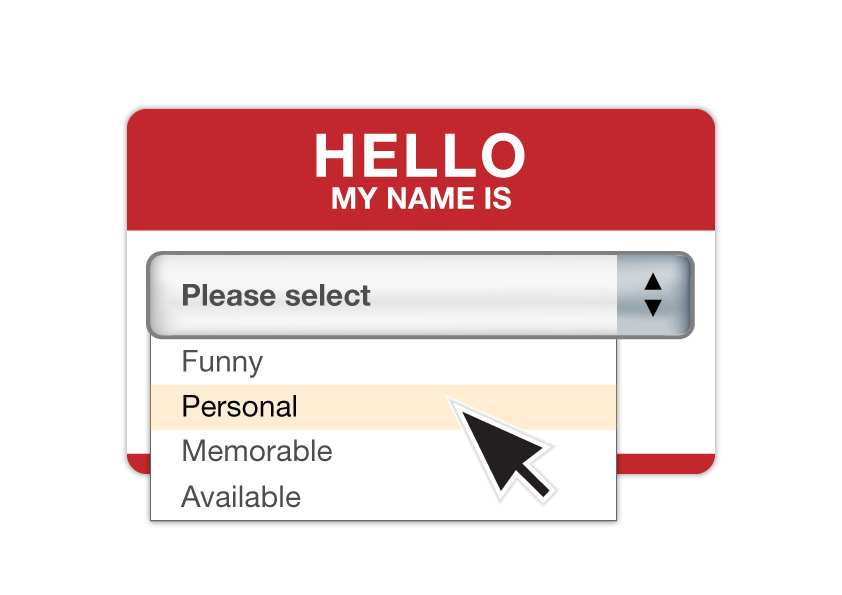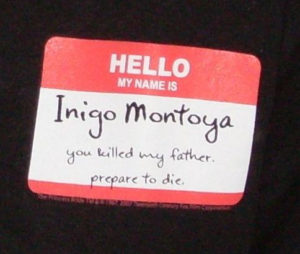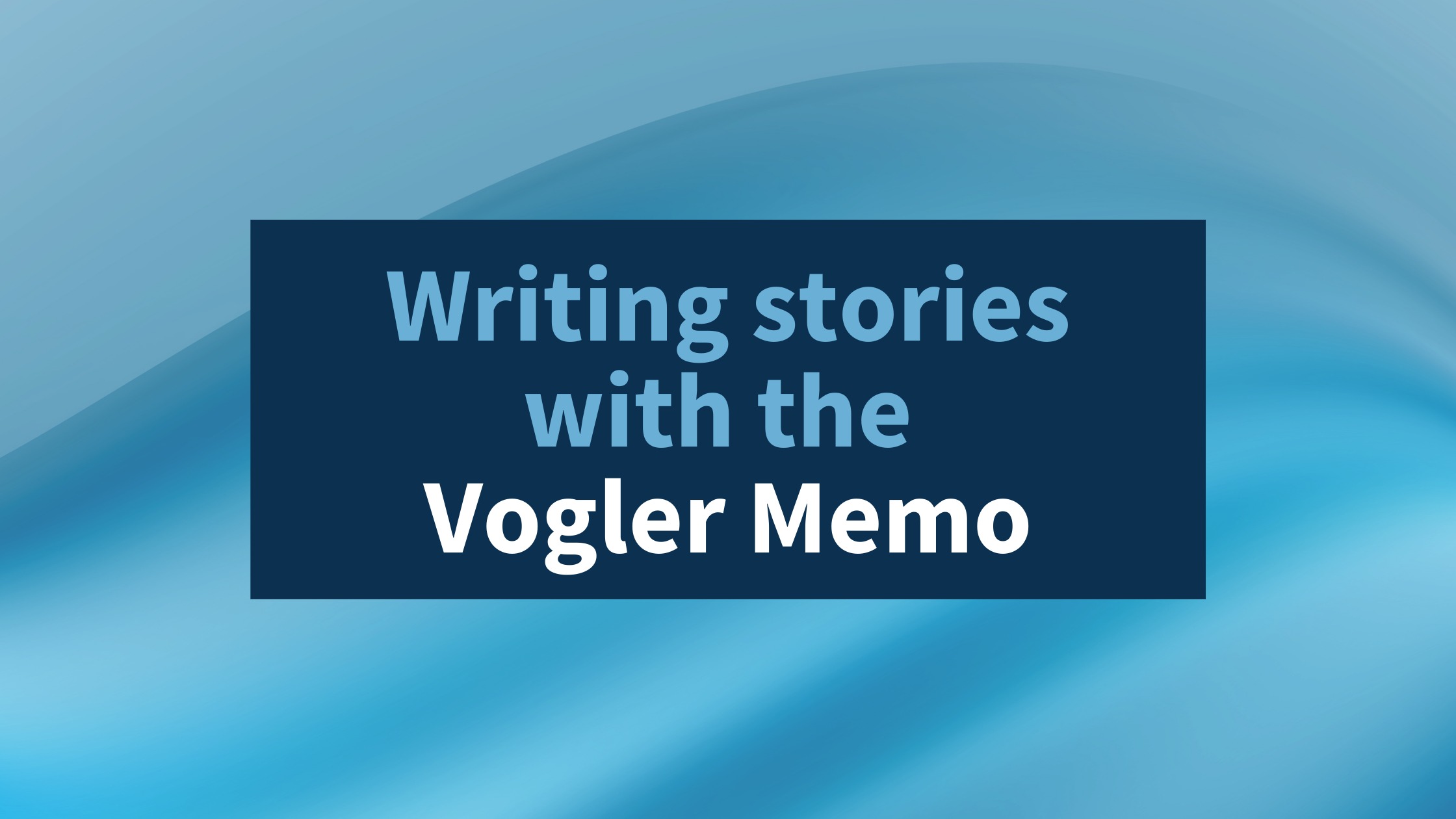Struggling to come up with a name better than “John Smith”? Here are a few strategies you can use to create interesting, memorable, and believable names for your characters.

Hannibal Lecter. Veruca Salt. Atticus Finch. Katniss Everdeen.
Simply reading the names above can summon vastly different emotions—anything from terror to admiration. The names are memorable not just because of whom they represent. These are successful character names because their sounds, shapes, and root meanings support the lives and environments of the characters and their stories.
The names of your main characters will be among the most common words to appear in your novel, so it’s important to get them right. Fortunately, there are a few tried and true ways to choose the perfect name.
Each author will have their own method for picking names, but if you’re ever feeling a bit lost on what to call your characters, try out these suggestions:
Get a baby name book
Many years ago, at a garage sale, I stumbled upon a tattered copy of The Baby Name Survey Book by Bruce Lansky. It’s since become an essential tool in my writing toolbox.
This book not only lists out more first names than you could ever hope to imagine—it also tells you what people think of that name based on survey data. To top it off, it lists the meaning of each name in its root language, as well as any celebrities who share that name. (Fair warning: It was published in 1998 and desperately needs an update, but it’s still useful.)
We all have our own associations with names, thanks to our personal relationships and experiences, but being able to see the patterns that names evoke is truly valuable. If you aren’t as interested in survey results, then I still highly recommend having a baby name book on hand simply because they list out so many names that may not be on your radar.
Of course, there are also websites with endless lists of baby names available. But sometimes opening a random page of a book is the best way to start.
Google it
Any character name you are considering must go through a Google search to make sure it’s not associated with anything or anyone unintended. Use quotation marks around the name to ensure that Google searches for the exact name, and be sure to try searching for some variants just in case.
Of course, most common names will probably have some matches. You may find, however, that your character shares a name with a public figure—like a politician or serial killer—that you weren’t aware of and don’t want associated with your novel.
Interrogate the name
Once you have a name or two you’re considering, try answering and experimenting with the following questions:
- What are the character’s initials?
- What nicknames would this character’s loved ones use?
- What nicknames would this character’s enemies use?
- Would the character like this name? (Note: They don’t have to!)
- How would this character introduce themselves?
- How would the character answer the question, “Why are you named ________?”
- Is this character named after anyone?
- Say the name aloud in all its variations. How does it sound?
By the time you finish this exercise, you will hopefully have a better understanding of the name itself, and know whether or not it’s right for your character.
Compare and contrast
Unless this is the first name you’re choosing for your book, the next step is to compare the name to other character names in your novel.
The best way to go about this is to write out each of your characters’ names in a list. Pay extra attention to the first letter in the names—if possible, your main characters’ names should all start with a different letter.
Of course, there are circumstances that call for similar names—telepathic identical twins, for instance—but overall, the more unique your characters names are from one another, the easier it will be on your reader.
For example, if you have a main character named Tyler and you want to add a new character named Taylor, you are almost guaranteed to confuse some readers, even if these two characters have starkly different personalities and behaviors.
How to choose a character’s last name
Coming up with a first name is one thing, but a last name can be a bit trickier. Thinking of something off the top of your head can result in awkward, unrealistic, and/or utterly boring results.
A good way to start is to consider your character’s ethnic, racial, religious, and demographic backgrounds. Unlike first names, which are typically chosen, a last name usually has a long history. Even if you don’t plan to reveal your character’s family background in any great detail, as the author, you should still have a full understanding of whether your character’s ancestors were Greek or Peruvian, or born on a distant planet in an alternate dimension.
Once you have that figured out, dig up a list of common last names that fit your character’s background. This is, once again, a great opportunity to use trusty Google—searches like “common Jewish last names” is more than likely to bring you solid results. (Just be sure to check out a few sites to make sure you’re seeing similar results.)
Of course, a common last name isn’t always what you want, so don’t be afraid to stray from the norm. But if you start out by finding a common last name and then playing with variations on that name, you’re much more likely to end up with a result that is believable and doesn’t catch your reader off guard.
Don’t latch on to it
After you’ve assigned a character name that feels right, it’s easy to become infatuated with the name. In an ideal world, your beta readers will always agree with you, but in some cases, you may find that you’re getting negative feedback around a particular name.
With any feedback, it’s important to weigh it carefully and with an open mind, particularly if you have several readers who all tell you the name doesn’t work. In such cases, it may be best to go back to the drawing board and try something different.
Ask your editor
If you’re still feeling conflicted when it comes time for a professional edit or critique, let your editor know when you submit your manuscript. It’s always useful for us to hear about the feedback you’ve already gotten, and any areas of the novel you’re concerned about.
How do you choose your character names? Any tips or tricks we missed?
—Liam Carnahan, Founder and Chief Editor





